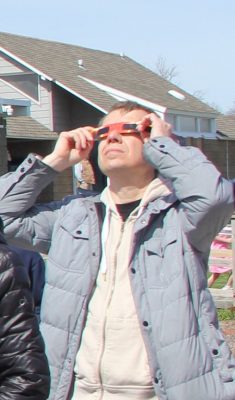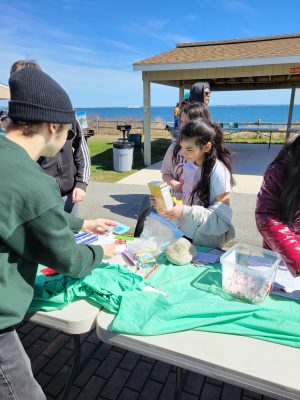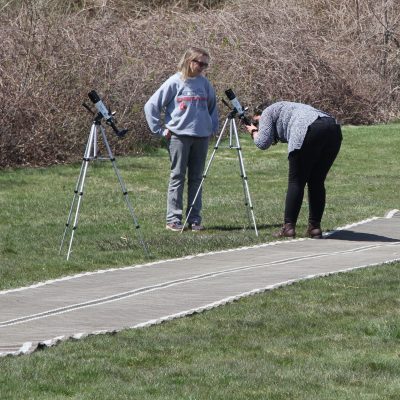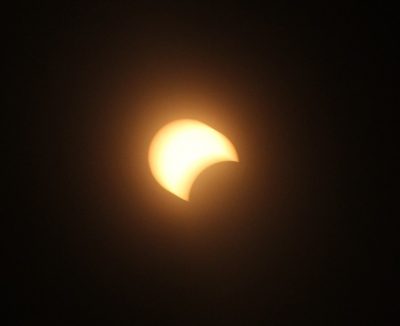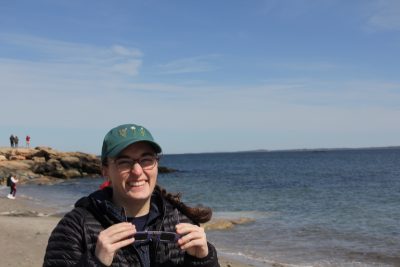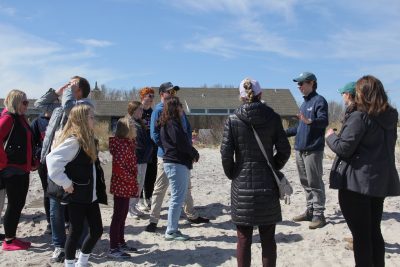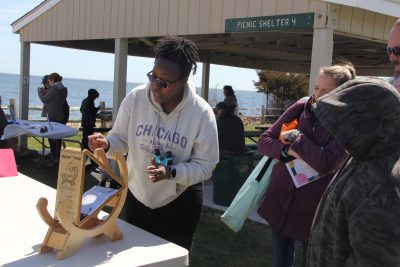
Story and photos by Judy Benson
Hundreds of families, couples and friend groups brought picnics, beach blankets, camp chairs and curiosity about the natural world to the eclipse viewing event at Camp Harkness in Waterford on April 8.
By coincidence, the solar eclipse happened during the annual observance of Community Science Month in April, providing an ideal means for the public to engage with science—what Community Science Month is all about. Also called participatory science, citizen science and public science, the community science initiative highlights the ways people other than scientists are involved in actions that advance appreciation and understanding of science and the environment. This could be anything from sharing nature photos on the iNaturalist app, to joining a research project to document biodiversity, volunteering to take water samples for recreational shellfishing or taking part in educational events such as the eclipse viewing.
The event at Camp Harkness, a 102-acre state park and swimming beach for people with disabilities, was organized by the Connecticut Department of Energy and Environmental Protection. Telescopes, eclipse eyeglasses and other equipment were available for viewing the eclipse, including scopes people could make themselves out of paper. While visitors waited for the celestial peek-a-boo game to begin, they enjoyed crafts, food truck offerings and playing in the surf and sunshine.
“We were overwhelmed with more than 500 people and their interest and questions, all there for the same reason,” said Kristen Bellantuono, coordinator of CT DEEP’s No Child Left Inside initiative and one of the event organizers. “Any time we can engage people in learning and exploring and give them a positive outdoor experience, the better off we are.”
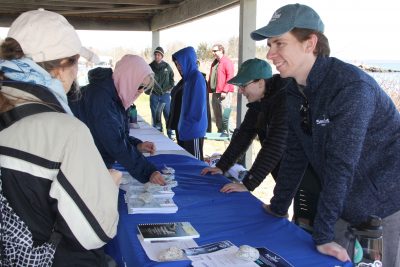
Bellantuono said the event was proposed to CT DEEP by Camp Harkness staff, and partners from the state Department of Developmental Services, Connecticut College, the Connecticut State Library and other groups pitched in to help.
One of the most popular offerings was brought to the event by Kym Powe of the Connecticut State Library. She set up a unique wooden device called a Sunspotter and showed visitors how to use it.
“It was really a memorable event,” Bellantuono said.
Connecticut Sea Grant contributed to the event with a table of educational materials and a guided beach walk led by Owen Placido, assistant extension educator-nature-based resiliency, and Sarah Schechter, assistant extension educator-sustainable & resilient communities.
“It was great to participate in such a vibrant science-oriented event in the community,” Placido said. “Everyone’s excitement for the eclipse was palpable. Camp Harkness is a beautiful location, and it was an excellent spot to teach people about the geology and shoreline processes of Connecticut beaches.”
Schechter said she especially appreciated the chance to interact one-on-one with members of the public about the environment.
“The Camp Harkness Solar Eclipse Viewing event was a great opportunity to talk about tidal variations and coastal changes,” she said. “I enjoyed having conversations about the natural world and sharing in the excitement of the day.”
